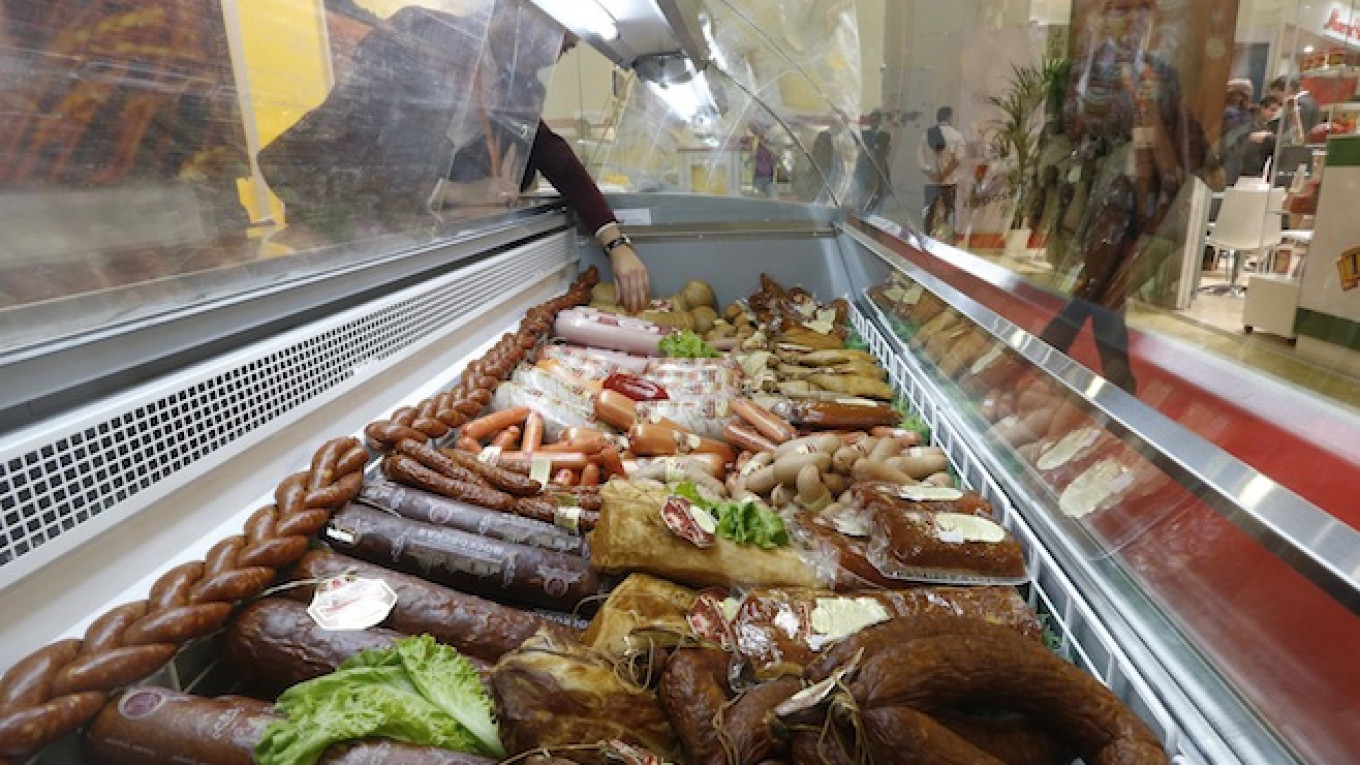Year-on-year inflation hit 8 percent in September, driven up by the plummeting value of the ruble and Russia's bans on many food imports from the United States and European Union, according to data from state statistics service, Rosstat.
Rising food prices were the main driver, climbing 11.4 percent year-on-year in September, up from a 10.3 percent increase in August. Prices on other goods rose by 5.5 percent year-on-year and the cost of services climbed 6.9 percent.
Prices rose fastest on meat, fish and fruit and vegetables — the same products hit by Russia's retaliatory ban in August on a range of food imports from countries that had slapped Russia with economic sanctions over the crisis in Ukraine.
The price of meat and fowl rose 16.8 percent, fish by 14.1 percent, milk products by 16.2 percent and fruit and vegetables by 6.1 percent.
The cost of imported goods and products made from foreign components has also been hit by the rapid devaluation of the ruble, which on Monday reached 40 rubles to the dollar for the first time since Russia's 1998 default.
Central Bank head Elvira Nabiullina said at an investment conference last week inflation would clearly exceed the regulator's goal of 5 percent for the year and likely reach "around 8 percent."
Despite the role of the ruble's depreciation in stoking inflation, the Central Bank plans to pull back from currency market intervention and switch to inflation targeting, or manipulating interest rates to achieve a publicly stated target level of inflation, she said. Russia will still conduct currency interventions to support the ruble exchange rate more frequently than other inflation targeting countries, she added.
Analysts cited by daily newspaper Kommersant were split on their forecasts: Barclays Research expects the Central Bank to be forced to raise key interest rates to 8.5 percent by the end of October — a 0.5 percentage point increase — while ING Eurasia expects the regulator to be able to avoid a further rise in interest rates.
A Message from The Moscow Times:
Dear readers,
We are facing unprecedented challenges. Russia's Prosecutor General's Office has designated The Moscow Times as an "undesirable" organization, criminalizing our work and putting our staff at risk of prosecution. This follows our earlier unjust labeling as a "foreign agent."
These actions are direct attempts to silence independent journalism in Russia. The authorities claim our work "discredits the decisions of the Russian leadership." We see things differently: we strive to provide accurate, unbiased reporting on Russia.
We, the journalists of The Moscow Times, refuse to be silenced. But to continue our work, we need your help.
Your support, no matter how small, makes a world of difference. If you can, please support us monthly starting from just $2. It's quick to set up, and every contribution makes a significant impact.
By supporting The Moscow Times, you're defending open, independent journalism in the face of repression. Thank you for standing with us.
Remind me later.


